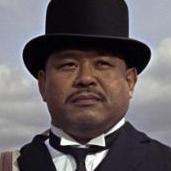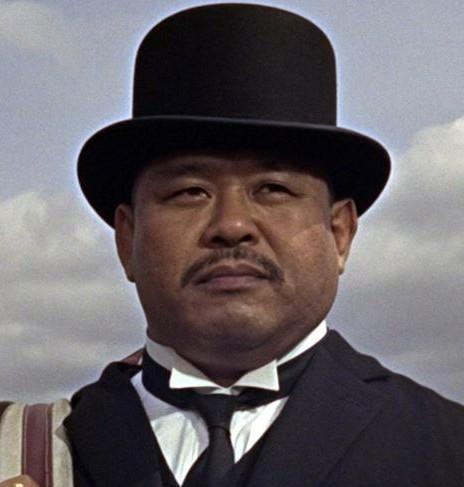-
Posts
12,924 -
Joined
-
Last visited
Content Type
Profiles
Forums
Events
Blogs
Everything posted by Teasing the Korean
-

Can Anyone Sort Out For Me Who Owns What?
Teasing the Korean replied to DMP's topic in Miscellaneous Music
To you, Sweetheart, aloha! -

Can Anyone Sort Out For Me Who Owns What?
Teasing the Korean replied to DMP's topic in Miscellaneous Music
And CD Baby! -

Can Anyone Sort Out For Me Who Owns What?
Teasing the Korean replied to DMP's topic in Miscellaneous Music
A music lover starts a label, can't handle the business aspects, and hands it over to professionals, for better or worse. Has happened since the beginning of the record industry. -

Can Anyone Sort Out For Me Who Owns What?
Teasing the Korean replied to DMP's topic in Miscellaneous Music
I heard all of it, which would include Kenyon Hopkins' Rooms if true. I know he owned the Everlys. -

Can Anyone Sort Out For Me Who Owns What?
Teasing the Korean replied to DMP's topic in Miscellaneous Music
The MCA branch was huge - Decca, ABC Paramount, Kapp, zillions of others. And Andy Williams owns Cadence. -

Can Anyone Sort Out For Me Who Owns What?
Teasing the Korean replied to DMP's topic in Miscellaneous Music
Universal has MCA, EMI, Capitol, and all that fell under them. BMG has RCA and Columbia, and all that fell under them. Polygram may or may not be a part of Universal now. Not sure who owns WEA or Atlantic/Atco. -
Too many to list. In another thread, I complained about a wonky stereo mix of a Miles Davis 60s album, which had Miles and Wayne overbearingly loud in the center, while the rhythm section was panned hard left or right. I remixed the album using Audacity. I used the conventional left/right channels, and then created a third mono track with just the rhythm and no horns. I placed this track in the center and faded it up to the proper amount. The net effect is that the stereo spread of the rhythm instruments is narrowed, and the horns are pulled back to where they are integrated into the band. My stereo mix is much more balanced than the conventional stereo mix. That may or may not fix the problem, and depending on the mix, it may make it worse. A variety of things can happen when you fold stereo to mono, including boosting the center image or losing elements through phase cancellation. I think the OP is talking about dedicated mixes. Back to the mono button, I think that most of RVG's 1960s stereo mixes are improved when folded to mono, because the bass and piano are boosted to the level that RVG intended for the mono versions.
-

the 69th Street Terminal (jazz quartet style)
Teasing the Korean replied to Sound Explorer's topic in Musician's Forum
Wrong forum. Try here: -

Oscar Pettiford or Bobby Montez?
Teasing the Korean replied to Teasing the Korean's topic in Artists
In fairness, some of those Blue Note tracks work better than others, and you could assemble a decent compilation with the best tracks from all of them. -

Oscar Pettiford or Bobby Montez?
Teasing the Korean replied to Teasing the Korean's topic in Artists
Side 1 is The Drum Suite, and side 2 is the Jazz Messengers doing their thang. The Columbia album grooves much more. As I wrote in another thread, my problem with the Blue Note albums is Blakey sounds like he's fighting against the African/Latin grooves, rather than grooving with them, and I don't mean going against them in a rhythmically interesting or compelling way either. Hoping that Mike Weil will waddle into the discussion. -

Oscar Pettiford or Bobby Montez?
Teasing the Korean replied to Teasing the Korean's topic in Artists
The whole side of the album is great. The Drum Suite is IMO much better than any of Blakey's Blue Note drum/percussion albums. -

Oscar Pettiford or Bobby Montez?
Teasing the Korean replied to Teasing the Korean's topic in Artists
No, I'm talking about Neal Hefti Oscar Pedersen, the European bassist. -
Art Blakey's The Drum Suite was released on Columbia in 1957. Bobby Montez's Jungle Fantastique was released on Jubilee in 1958. Blakey's album includes a track titled "Oscalypso," credited to Oscar Pettiford, who plays bass on the album. Montez's album includes a track called "African Fantasy," credited to Montez. The melodies are very similar. I don't know if it is a routine pattern that was often played over tumbaos or other grooves, but I don't think I've heard this precise riff on other Latin records. I wonder what the story is.
-

Heino - Because We Need Him Now More Than Ever
Teasing the Korean replied to Teasing the Korean's topic in Artists
www.oldweirdeyes.com -

Charles Lloyd Columbia 45 (Beatles Cover)
Teasing the Korean replied to JSngry's topic in Discography
Did the Mosaic set include a piece of Mike Love's toga from the Sunflower photo shoot? -

Charles Lloyd Columbia 45 (Beatles Cover)
Teasing the Korean replied to JSngry's topic in Discography
I'm hoping for flute and bongos, for a beatnik vibe. -

Charles Lloyd Columbia 45 (Beatles Cover)
Teasing the Korean replied to JSngry's topic in Discography
I realize that many of the regulars here will react in horror to jazz musicians playing today's "rock" music, but really, it is inevitable that this is happening. I don't consider myself a fan of today's sounds, but whenever someone tries to tell me that today's music is all noise, I point to the Beatles as an example of a group that is doing some creative things. As more and more jazz artists cover their songs, it will be refreshing to hear Beatles music delivered in the professional, refined, and genteel manner that we associate with jazz. -
The Bossa musicians did not like Regina when she first came on the scene. They accused her of yelling. By contrast, Joao Gilberto would invite a friend over to his place, have his friend stand at the other end of the hallway, and repeat "O pato" over and over as quietly as possible, trying to determine the lowest possible singing volume that could still be understood, Obviously, Regina was accepted, and her album with Jobim in particular is considered a classic. I have that documentary, but it has been ages since we watched it.
-
In Ruy Castro's book between pp 232 and 235, he indicates that Lennie Dale, a US choreographer working in Brasil, "...decided to jump the gun and invent a dance before some other gringo did." Castro indicates that the dance never caught on in Brasil, in part because "men did not feel comfortable dancing it because it did not suit their masculinity terribly well...and the only women who were capable of executing such contortions, without ending up at a chiropractor, were...professional dancers." Elsewhere in the same section, Castro describes Bossa as "a form of music that was meant to be exclusively listened to." Castro does not reference the Jequibau at all, so could be.
-
I don't think we could prove that nobody in Brasil ever danced to the Bossa, but it was intended as listening music, much like jazz has become (for better or worse). My point was the music was not centered around a dance, and there was no dance in Brasil devised to go with it. Roy Castro addresses this in his book, which I recommend.
_forumlogo.png.a607ef20a6e0c299ab2aa6443aa1f32e.png)
